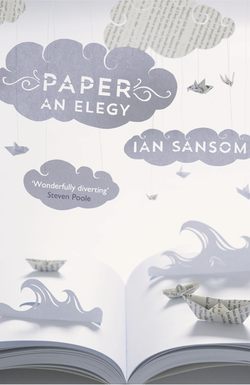Читать книгу Paper: An Elegy - Ian Sansom - Страница 13
Оглавление
Hand-made comb-marbled paper by Ann Muir
A page from Gutenberg’s forty-two-line Bible
At the beginning of his famous novel The Naked Lunch (1959), William Burroughs includes what he calls a ‘deposition: a testimony concerning a sickness’ (my copy of the book, a nice tight hardback, with original dust jacket, published by John Calder, was bought secondhand from an old junkshop in Chelmsford that I used to visit with schoolfriends at weekends in search of cheap paperback Beats, and Jean-Paul Sartre, and Albert Camus, and the Picador Richard Brautigan, and Borges, and Philip K. Dick). Burroughs is writing about his fifteen-year addiction to ‘junk’ – opium and all of its derivatives, including morphine, heroin, eukadol, pantopon, Demerol, palfium and a whole load of other stuff that he had variously smoked, eaten, sniffed, injected and inserted. ‘Junk,’ Burroughs writes, ‘is the ideal product … the ultimate merchandise. No sales talk necessary. The client will crawl through a sewer and beg to buy … The junk merchant does not sell his product to the consumer, he sells the consumer to his product … The addict … needs more and more junk to maintain a human form … [to] buy off the Monkey.’
The chances are, if you are reading this book, you are no better or worse than William S. Burroughs. The chances are, you have a serious problem: you’re an addict. You have been sold to a product. You have a monkey on your back. And that monkey is made of paper.
(But it’s OK. You are not alone. Here’s where I’m at: I am wearing a pair of dirty, brown, broken slip-on boots that my sister bought for me about ten years ago; in both boots the sole is split right across the middle, and I have attempted to fix them with super-glue. I have two other pairs of shoes, but they too are broken, too broken in fact for me to be able to patch up, and they have therefore required professional attention and are currently awaiting collection from the excellent boot and shoe repair shop – motto, ‘Shoes Good Enough To Wear Are Good Enough To Mend’ – just off Botanic Avenue in Belfast. I am wearing one of the shirts that the father of a friend of mine kindly sent me a few years ago, when he’d retired and was throwing out all his old work clothes and buying leisurewear. All of the shirts are made of a drip-dry nylon – Alagon – of a kind now unavailable for reasons not at all clear to me; you get used to the rashes after a while, and the benefit of not having to iron the shirts surely outweighs any slight skin complaint the material may cause. My trousers are one of the two wearable pairs that I’m currently running, and they’re in pretty good condition, although they are covered in green paint from a couple of summers ago when I was painting the shed where I work in the garden. My jacket is circa 1990. And I am standing in the War on Want bookshop, down at the other end of Botanic Avenue, ostensibly on my way home from work, and I have half a dozen books in my arms, and I know that if I blow all of my £20 spending money on these books I won’t be able to get my shoes back from the cobbler, and I’ll have to leave them there another week. They’ve already been in for a month, and the proprietor of the shop has started leaving messages for me on my answerphone. I have a decision to make. I buy the books. For the foreseeable future I shall continue to be dressing like a vaudeville comedian, or a character in a play by Samuel Beckett.)
The first documented use of the word bibliomania, according to my OED – the twenty-volume second edition, bought as a present to myself when I received the advance on my first novel, and which cost me the advance on my first novel, which meant effectively that I wrote a book to buy a book – was in 1734, in the Diary of Thomas Hearne
